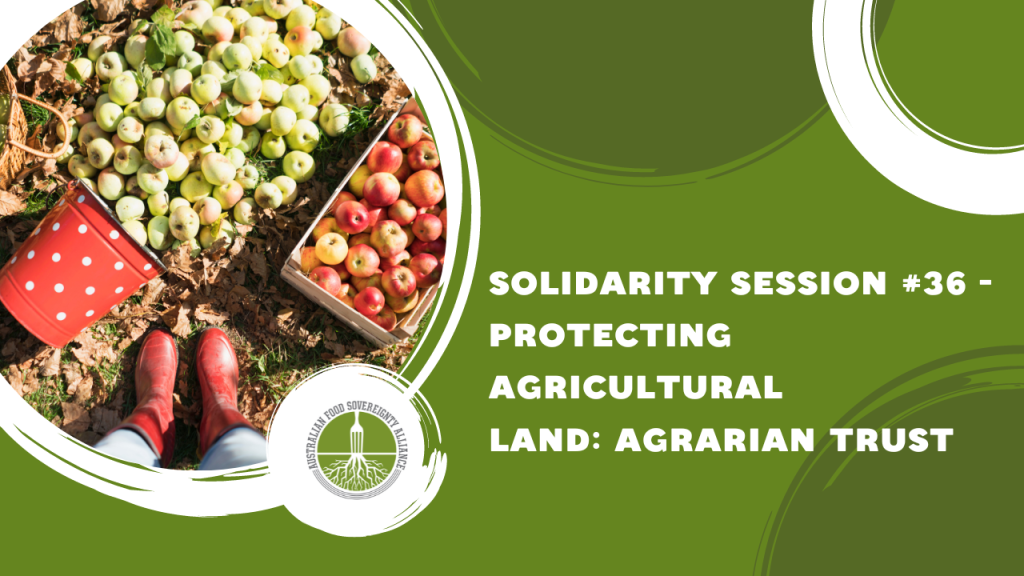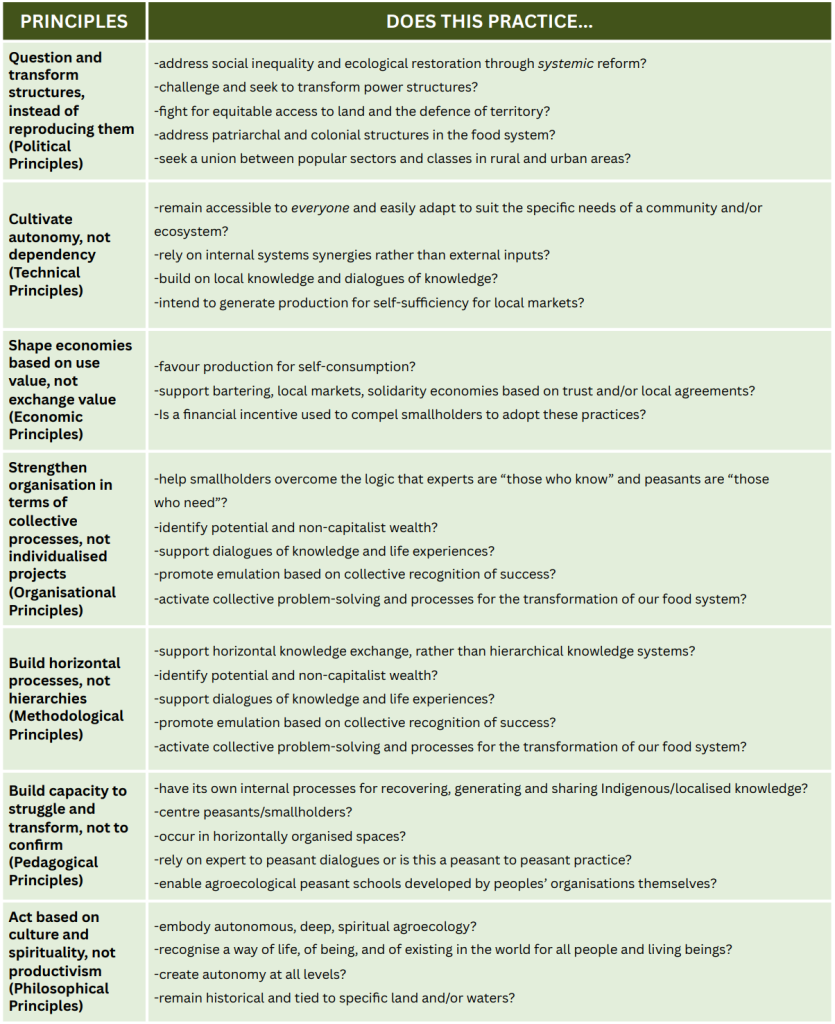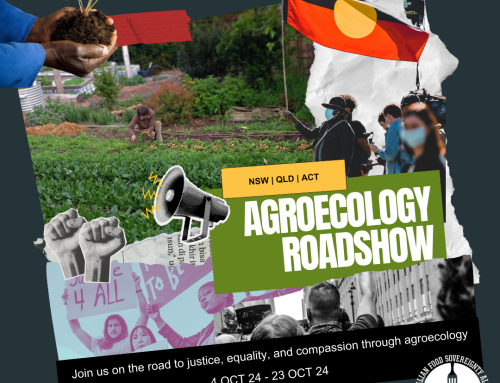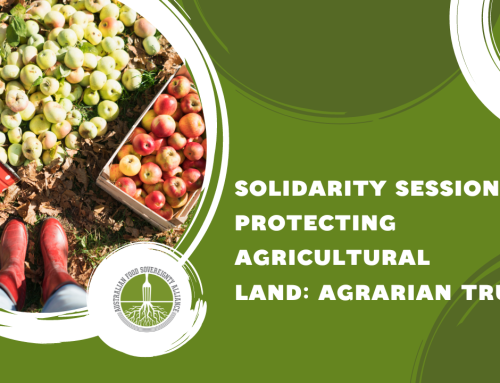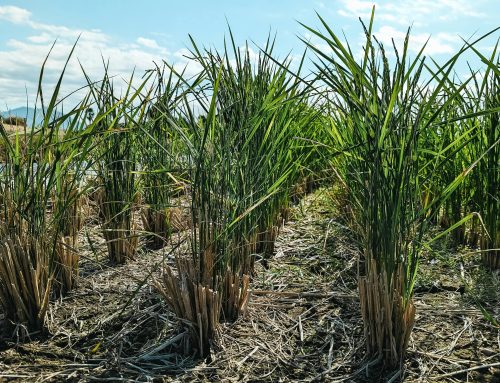The multiple unfolding crises of climate change, skyrocketing costs of living and global conflicts can feel quite personally overwhelming. Yet, these crises highlight more than ever the need for collective action to build resilience and nourish connections within communities.
In Tyson Yunkaporta’s recent book: Right Story, Wrong Story, we are called to approach differences in ideology through Indigenous ways of thinking and being, such as relationality, which acknowledges that everyone holds inherent knowledge, wisdom and value based on our relations with Country and with each other. Yunkaporta calls out the rise of gurus as ‘wrong story’, where the notions of equality and connectedness are lost to those who claim to hold special and infinite wisdom above others.
Gurus typically advocate responses to global crises that start (and end) with the (individual) self. Such individualism is intrinsically linked to the colonial mindscape – which functions to divide and conquer. Many so-called gurus promote universal answers to complex and context-specific problems, capitalising on the fear which permeates contemporary society. Yet there is no one solution, nor one leader who can get us out of the mess we’re in. Through coming together, practising deep listening, relating to the human and more-than-human world, and empowering communities to collectively design their own transformations, we can dismantle destructive forces and actively produce a connected and socially- and ecologically-just future.
The Australian Food Sovereignty Alliance (AFSA) does not advocate gurus, ‘influencers’ or ‘thought-leaders’ to tell us how to run a revolution, instead working towards empowered solidarity by encouraging and fostering democratic participation in all aspects of the food system from production through to governance. A long-term majority women-led organisation, AFSA takes an eco-feminist approach strongly informed by First Peoples’ ways of thinking and being, valuing relationality and reciprocity with Country and community, fighting against patriarchy and colonial capitalism that promote mastery over nature, bodies, and minds. We have operated on a strong spirit of volunteerism for over 13 years – AFSA itself is a community economy demonstrating that money is not always the best or most appropriate reward for hard work.
AFSA’s approaching Agroecology Roadshow – 4-23 October 2024 – arises from the urgent need to collectivise. We will hold space for a flourishing of bio-regionally specific dialogue and action – led by YOU. AFSA will be travelling to communities to assist in organising platforms for First Peoples, farmers, farm and food workers and allies to connect, deliberate, and act. Agendas at AFSA events are determined by those who turn up – unconferences are a powerful expression of democratic participation in deliberating and decision making. Local policymakers are encouraged to join us as keynote listeners.
Turning away from the traditional monologic format of conferences and town hall meetings full of talking heads, the Agroecology Roadshow brings a collaborative approach, directly resisting the imposed hierarchies that exist within these more ‘traditional’ spaces. The Roadshow seeks to build knowledge around the politics and practices of agroecology; raising a groundswell in the lead up to the annual Food Sovereignty Convergence in Bermagui 18-19 October 2024. AFSA will also be sharing the newly launched Legal Guide for farmers, and hosting sessions on how to make use of the Peoples’ Food Plan in local and state lobbying efforts. Together, we will grapple with the worldwide crises of increasing corporate and elite control of land, infrastructure, and governance as they manifest locally.
Farmers’ horizontal knowledge sharing works in dialogue with many forms of expertise, including western science and policy, and importantly, Indigenous knowledges. The AFSA National Committee is committed to a continual process of learning and reflection on the best ways to strengthen the food sovereignty movement in Australia. Backed by a wealth of evidence from 30 years of movement building and research into agroecology and food sovereignty globally, we believe our movement must rely upon emancipatory agroecology to enable First Peoples, farmers, and eaters to gain greater autonomy over localised food systems.
We draw on Giraldo and Rosset’s (2022) seven principles of emancipatory agroecologies as a framework to recognise our collective struggles and move towards food sovereignty for everyone. To get there, we need horizontal knowledge exchanges, not hierarchies of experts appropriating and dispersing traditional knowledge to those who can afford to pay the price. We’ve included some guiding questions that form the basis of the Agroecology Roadshow’s format and intention.
Does the proposed solution:
- Question and transform structures, instead of reproducing them (political principles)
- Cultivate autonomy, not dependency (technical principles)
- Shape economies based on use value, not exchange value (economic principles)
- Strengthen organisation in terms of collective processes, not individualised projects (organisational principles)
- Build horizontal processes, not hierarchies (methodological principles)
- Build capacity to struggle and transform, not to confirm (pedagogical principles)
- Act based on culture and spirituality, not productivism (philosophical principles)
We are guided by these principles as a movement to advance food sovereignty with collective autonomy. The principles of emancipatory agroecologies cannot be taught or repackaged by a guru who claims to hold sacred wisdom imparted at a cost. In fact, in regards to charging a fee to share movement building strategies, Giraldo and Rosset report their findings from years of research with peasants globally:
One of the greatest lessons learned from emancipatory methodologies is that s/he who
promotes a practice should not be paid; the process should work without cost, through the pleasure of sharing and collective reflection. Peasants don’t believe in the practice of another peasant if they believe that other person is just doing it because they are paid to do so. When cash transfers are doled out to encourage agroecological practices, people tend to do them for the ‘love of the cash,’ rather than for the ‘love of agroecology,’ a common refrain among indigenous peoples’ organizations in Mexico (personal observation). When the money runs out, the practices are abandoned, because no intrinsic motivation exists.
Take what so-called gurus and influencers have to say with a grain of salt, and look for strength in the solidarity of collectives. Join us at a stop near you during the inaugural Agroecology Roadshow, and be a part of cultivating a new and just food system.
Follow us on Facebook, Instagram and LinkedIn as we share posts about the seven principles of emancipatory agroecologies in the coming weeks!
Want to learn more? Here are some links to further reading and listening on this topic:
- Right Story, Wrong Story by Tyson Yunkaporta (2023)
- Emancipatory agroecologies: social and political principles, Giraldo & Rosset (2022)
- Doppelganger by Naomi Klein (2023)
- Naomi Klein on following her ‘doppelganger’ down the conspiracy rabbit hole – and why millions of people have entered an alternative political reality (2023)
- The Other Others podcast with Tyson Yunkaporta
- Conspirituality podcast
- The New Gurus podcast on BBC with Helen Lewis
See more guiding questions for emancipatory agroecologies in the table below.

